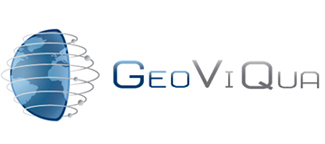New project to improve usability of global environmental data

The results of the project will have a global impact improving decision making and helping to solve global problems like climate change, catastrophic events or loss of biodiversity. The initiative is supported by the participation of 10 partners - among which one Catalan and two English universities, French, Italian and German research centres, a Dutch company and the European Space Agency. The total budget is approximately 4 million euros; 3 million are funded by the European Commission.
GeoViQua will contribute to the development of the Global Earth Observation System of Systems (GEOSS) platforms. GEOSS is a project of initially 10 years duration (2005-2015) promoted by 85 countries worldwide and international organisations - for instance space agencies like NASA, ESA and JAXA. Its main objective is to create a global and public network of environmental data that is comprehensible and available in real time. GEOSS content and accessibility will have a global impact, enhancing the understanding of the dynamics of the planet and influencing environmental policies. The European Union funds the best initiatives, such as GeoViQua, in order to improve GEOSS and push its development further.
GeoViQua (the contraction of GEOSS Visualization and Quality) will take environmental data from international organisations like FAO, the World Meteorological Organization, or the European Environment Agency and will provide methodologies to enhance data documentation, formalising quality parameters and metrics, and extracting them from data sources, validation procedures, or even through expert users' comments.
During the processes of creation of these datasets, strict protocols must be followed to determine the accuracy and usability of data. Unfortunately, in many cases this information remains only in the producer organisation or it is not expressed in a widely accessible manner. In addition, new technologies such as internet map browsers allow data to be made available to everyone and rapidly exchanged, which sometimes leads to a loss of appreciation of the associated uncertainties with the risk of then using it in an inappropriate manner. These aspects are particularly relevant when the information is used in sensitive topics such as anthropogenic climate change. GeoViQua will attach standard quality metadata to data making it available to users and experts which will produce more reliable studies about environmental systems and their dynamics.
This project aims to contribute to a higher level of innovation to GEOSS project, increasing user confidence in the future information infrastructure. These innovations will be centred on the development of quality enabled search engines and visualisation portals. With the adoption of a GEO label that considers quality indicators, the task of communication and exploitation of the vast information resource represented by the GEOSS databases will be easier.
All developed components in GeoViQua will be compatible with current geospatial standards, mass market map tools like Google Earth, other 3D visualisation tools, and mobile devices.

